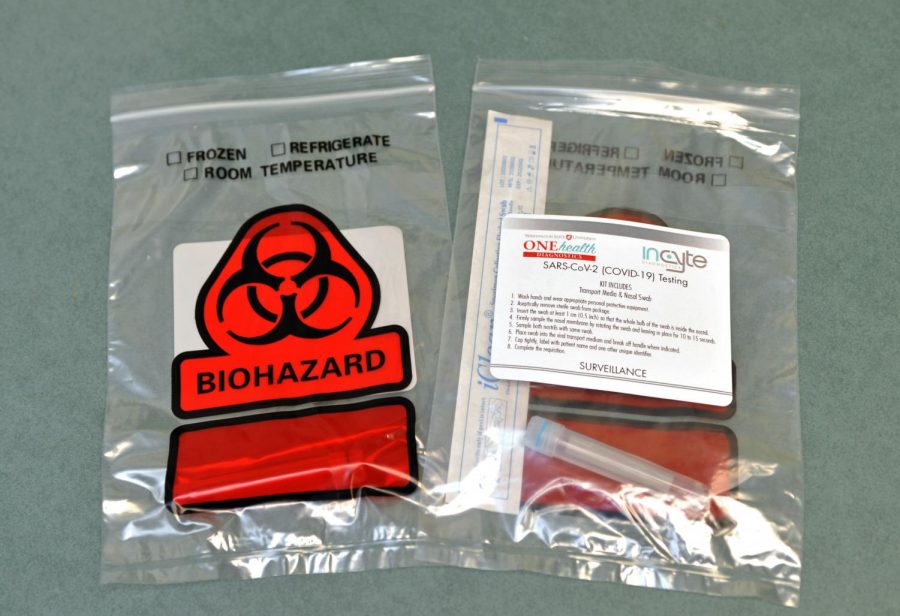WSU lab tests human samples for COVID-19
WSU lab is not collecting samples or testing general public; lab expects to process 1,500 samples per day by August
One Health Diagnostics is testing human samples for COVID-19. The lab currently tests 300 samples a day.
July 21, 2020
A WSU lab is collaborating with private laboratory Incyte Diagnostics to test human samples for COVID-19.
One Health Diagnostics is a testing site in WSU’s Washington Animal Disease Diagnostics Laboratory that provides surge capacity testing for the Palouse, according to the OHD website. Surge capacity testing involves testing hundreds of samples at once.
Timothy Baszler, executive director of WADDL, said the samples tested by WSU come from Incyte Diagnostics. These samples originate from Washington state. OHD does not test the general public or collect samples.
Baszler said the Washington State Department of Health asked the university to assist with testing due to a lack of testing capacity in eastern Washington.
Testing consists of three parts, he said. First, Incyte Diagnostics collects samples and records patients’ information in a database to keep track of the samples. Then the OHD tests the samples. Finally, Incyte Diagnostics reports the results to whoever ordered the test.
OHD runs about 300 tests a day, but they are expecting to reach 1,500 tests by August, Baszler said. Testing started slow because new staff had to be hired and trained to operate the tests and get the equipment in place.
Baszler said OHD could be used to test students and faculty upon returning to campus, but he will not know until the university releases their student testing plan.
“That’s one of the intentions of having the lab here is to assist in having a close proximity lab that can do the testing so you get results back quickly,” he said.
Two labs with quality assurance were provided with polymerase chain reaction testing and antibody testing, according to the website.
By developing primers, PCR testing looks for the coronavirus’ specific genetic material in DNA, Baszler said. DNA strands are heated to 100 degrees celsius, which is when it comes apart and allows primers and probes to find the coronavirus gene sequence.
Baszler said antibody testing will be ready by the end of July, but those tests do not say if the antibodies will protect past patients against the virus.
“We can combine antibody testing with PCR testing and we’d know active infections plus any past infections,” he said. “We aren’t sure whether they protect you from a reinfection or not, or for how long, there’s a lot of unknowns about antibodies.”









